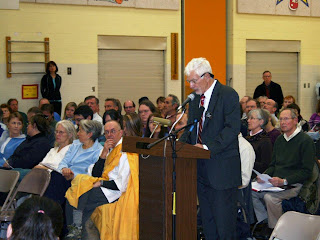 |
| Poster for No Highway in the Sky from Wikipedia |
*******************
Engineering Adventures with Nevil Shute
In this course we will read two of Nevil Shute’s lesser-known books: Slide Rule (his autobiography) and No Highway, (which presaged the failure of the early De Havilland Comet airplane).
Based on these books, we will discuss the troubles that can befall engineering projects. The books include issues of changing specifications, the difference between private enterprise and "government work," and how quirky individuals affect the outcome of projects.
The course will be participatory. We will discuss issues from the books, then we will trade "war stories": similar problems and solutions with our own projects.
The material will be of interest to engineers and non-engineers. If you have been involved in a big project, such as building a house, you have the background to enjoy this course.
Discussion group members should plan to read both books.
************************************
MEREDITH ANGWIN has a MS in Physical Chemistry. Though most of her life was spent in nuclear energy research and problem-solving, she also worked extensively with fossil fuels. She likes to talk about technical subjects in a relatively non-technical fashion. For many years, her job title was "project manager." Consequently, she often wonders how projects get managed.
***************************************
In this class, we are also going to watch the movie, No Highway in the Sky, in an optional extra class session.
I have led courses at ILEAD before, specifically:
- All Around the Coal Boiler
- Energy Safari with Robert Hargraves.
Leading a course like this, as opposed to a leading a course in energy technology, will be a new adventure for me. Wish me luck! I will post about the course occasionally.
.JPG)

















.JPG)

.JPG)
.JPG)